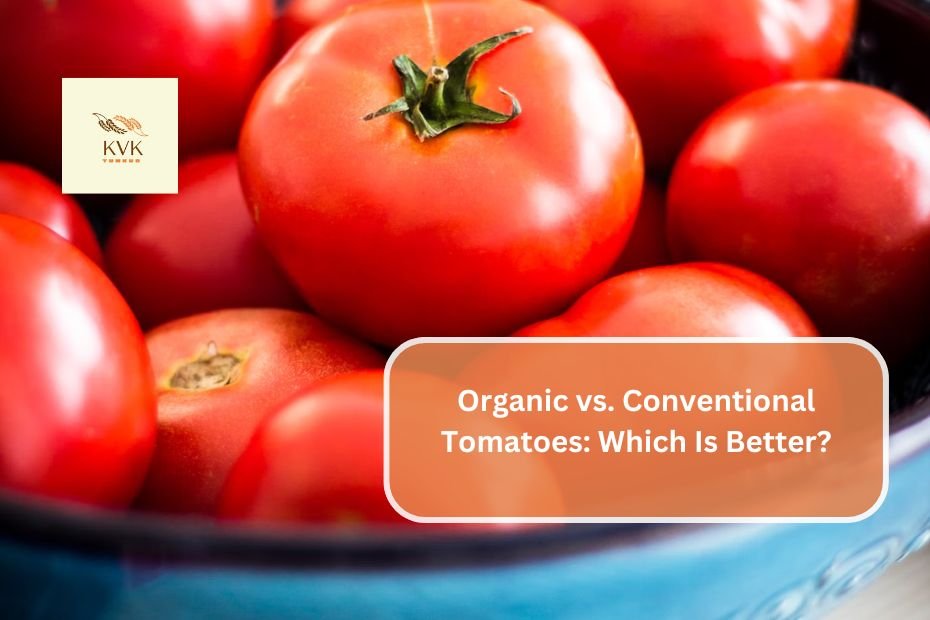The debate over whether organic or conventional tomatoes are better encompasses various factors, including nutritional content, environmental impact, and health considerations. Here’s a detailed comparison based on recent findings and expert opinions.
Nutritional Differences
Organic Tomatoes
Research indicates that organic tomatoes may have higher levels of certain beneficial compounds compared to their conventional counterparts. A study conducted by the University of Barcelona found that organic tomatoes contained higher concentrations of polyphenols, which are antioxidants that can contribute to health benefits such as reducing inflammation and protecting against chronic diseases. This increase in polyphenols is attributed to the lower nutrient supply in organic farming, which forces plants to produce more of these compounds as a defense mechanism against stress.
Conventional Tomatoes
Conventional tomatoes are typically grown using synthetic fertilizers and pesticides, which can enhance growth and yield. However, these practices may also affect the nutritional profile of the tomatoes. While conventional tomatoes still provide essential nutrients like vitamin C and lycopene, the levels of antioxidants may not be as high as those found in organic varieties.
Health Benefits
Both organic and conventional tomatoes offer significant health benefits due to their rich nutrient content:
- Lycopene: Both types are excellent sources of lycopene, an antioxidant linked to reduced risks of certain cancers and heart disease. The cooking process can enhance the bioavailability of lycopene, making tomato products like sauces and juices particularly beneficial.
- Vitamins and Minerals: Tomatoes are rich in vitamins A, C, K, potassium, and folate, regardless of their growing method. These nutrients support various bodily functions, including immune health and cardiovascular function.
While organic tomatoes may have a slight edge in antioxidant content, the overall health benefits of consuming tomatoes—whether organic or conventional—are substantial.
Environmental Impact
Organic Farming
Organic farming practices are generally more sustainable and environmentally friendly. They avoid synthetic pesticides and fertilizers, promoting biodiversity and healthier soil ecosystems. Organic methods often lead to better soil health over time due to crop rotation and composting practices.
Conventional Farming
Conventional tomato farming can lead to soil degradation and increased chemical runoff into waterways due to the use of synthetic inputs. However, conventional farming methods can produce higher yields per acre, which is crucial for meeting global food demands.
Consumer Considerations
Cost
Organic tomatoes often come with a higher price tag due to more labor-intensive farming practices and lower yields. Consumers must weigh the potential health benefits against their budget when deciding between organic and conventional options.
Taste
Taste preferences can vary; some consumers claim that organic tomatoes have a richer flavor due to their slower growth rates and natural farming methods. However, taste is subjective, and many people enjoy both types equally.
Conclusion
In conclusion, both organic and conventional tomatoes have their merits. Organic tomatoes may offer higher levels of antioxidants like polyphenols, potentially providing additional health benefits. However, conventional tomatoes still deliver essential nutrients that contribute to a healthy diet. Ultimately, choosing between organic and conventional tomatoes may depend on personal values regarding health, environmental sustainability, taste preferences, and budget considerations. Regardless of the choice made, incorporating tomatoes into your diet is beneficial for health due to their rich nutritional profile. Whether you opt for organic or conventional varieties, enjoying fresh tomatoes can enhance your meals while supporting overall well-being.
| HOME | CLICK HERE |
| CATEGORY | CLICK HERE |

